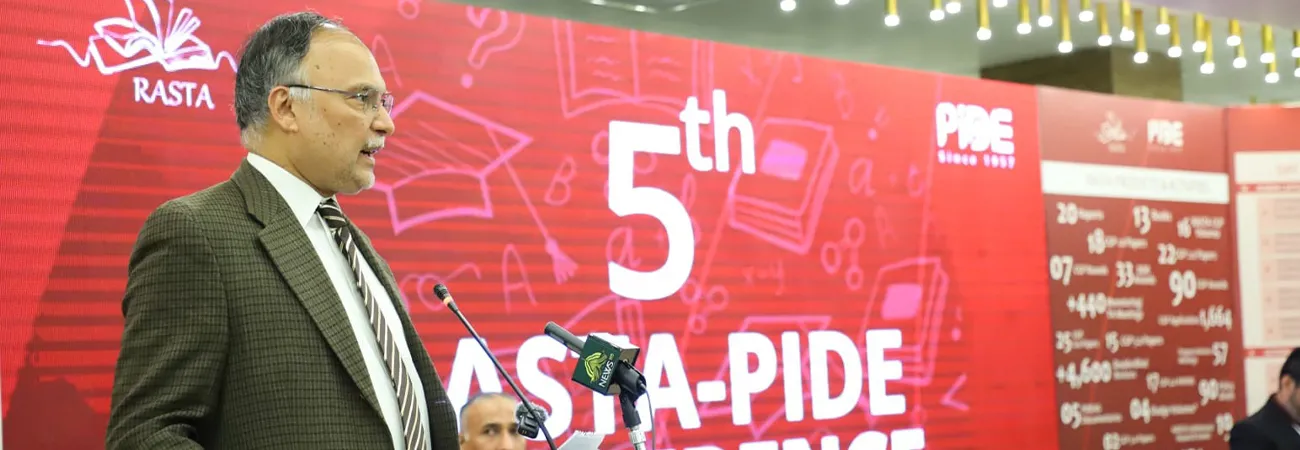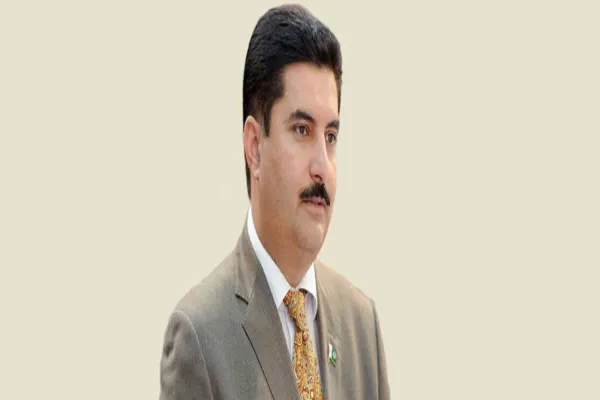i NEWS PAKISTAN
Indorsing its commitment to evidence-based policymaking, economic innovation, and research-driven reforms, the Pakistan Institute of Development Economics (PIDE) inaugurated the 5th RASTA Conference. Federal Minister for Planning, Development & Special Initiatives, Prof. Ahsan Iqbal Chaudhary, the chief guest, delivered a keynote address. He said, “Pakistan must sprint forward by eliminating inefficiencies and embracing structured, data-driven policymaking. He pointed to China, South Korea, and Singapore as examples of nations that have successfully leveraged scientific planning, phased implementation, and policy consistency to achieve economic success, while Pakistan continues to complicate simple problems.
Highlighting governance instability and policy discontinuity as major barriers to economic progress, he recalled that between 2013 and 2018, Pakistan eliminated power shortages, secured $25 billion through CPEC, and improved security. However, political disruptions halted this momentum, proving that economic success is impossible without stability. He called for rapid export expansion, resource optimization, and structured economic planning.
In his opening remarks, Dr. Muhammad Nadeem Javaid, Vice Chancellor of PIDE, emphasized that PIDE is not just a think tank—it is a bridge between research and action. He outlined a vision for strengthening Pakistan’s policymaking landscape through new initiatives designed to ensure that research translates into real impact. He announced the establishment of a Policy Lab that will provide real-time, data-driven solutions for governance and economic challenges.
Dr. Faheem Jehangir, Director Policy at PIDE and Project Director RASTA, provided insights into RASTA’s remarkable expansion over the past four years. He said, “The initiative has cultivated an extensive knowledge network, collaborating with 70 local universities, 12 international institutions, and over 4,300 researchers, practitioners, and academicians. The Competitive Grant Program (CGP) has received 1,664 applications across seven rounds, but to maintain quality and impact, only 90 research projects (7.8% selection rate) were funded. Of these, 65 have been successfully completed, while the remaining 25 are being presented at this conference. In parallel, the Demand-Driven Research (DDR) Program, which addresses government policy needs, has funded 33 government-driven projects, with 22 completed and publicly accessible”.
The conference also featured several technical sessions on technology-driven economic growth, fiscal management, and governance efficiency. The first session was chaired by Babar Majid Bhatti, CEO of the National Information Technology Board (NITB), with Zahid Asghar, Professor at Quaid-e-Azam University, Islamabad. The session addressed “Tech for Competition and Growth," included research presentations on Big Data Analytics in business competitiveness, the development of a Tech Index for Pakistan, the adoption of UAVs in agriculture, the impact of digital currencies, and pharmaceutical export competitiveness.
The second session, "Fiscal Management," featured experts including Hafeez A. Pasha discussing Pakistan’s tax system, broadening the tax base, sub-national revenue collection, and the impact of the 18th Constitutional Amendment on fiscal policy. It was chaired by Ikram Ul Haq, Professor of Taxes and Managing Partner at Huzaima & Ikram, with Imtiaz Ahmad, Economic Adviser at the Ministry of Finance, serving as the discussant.
Credit: Independent News Pakistan (INP)









